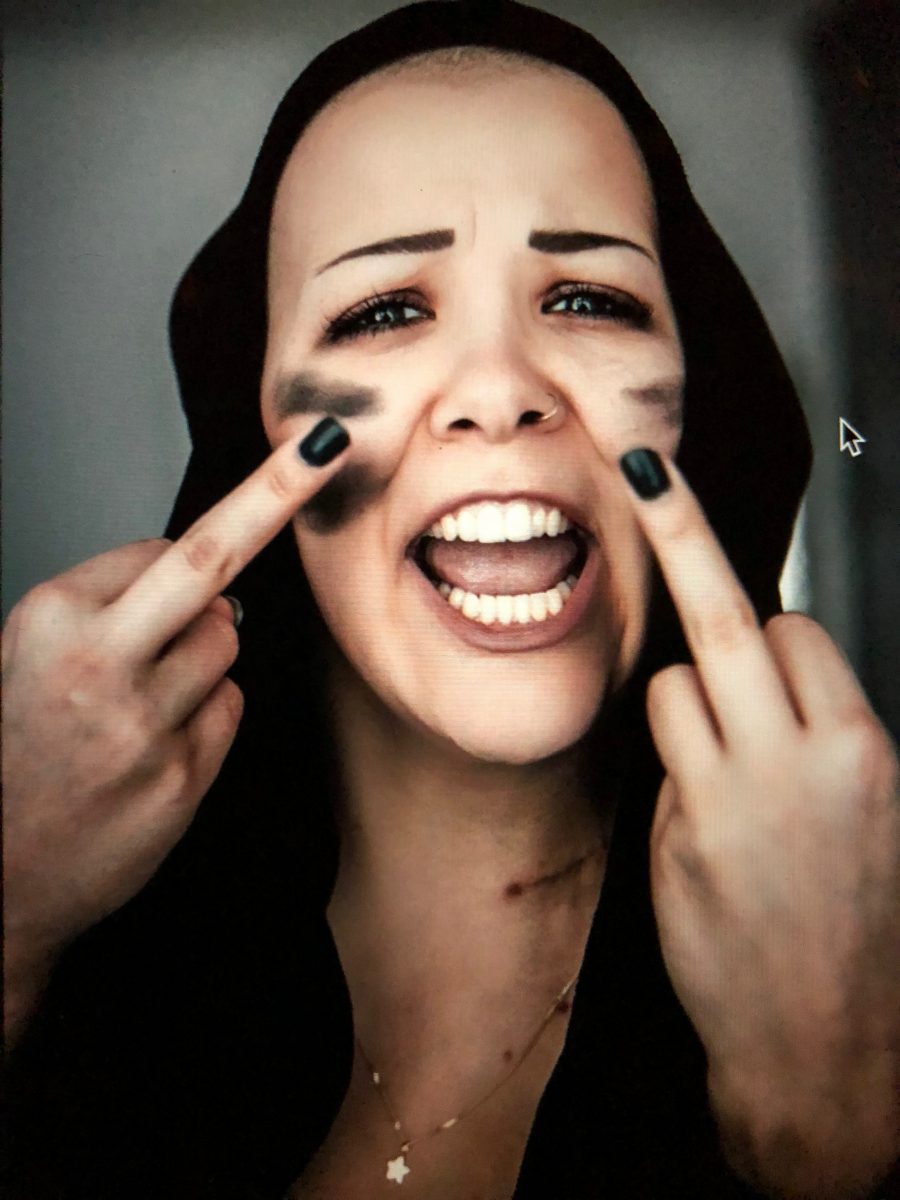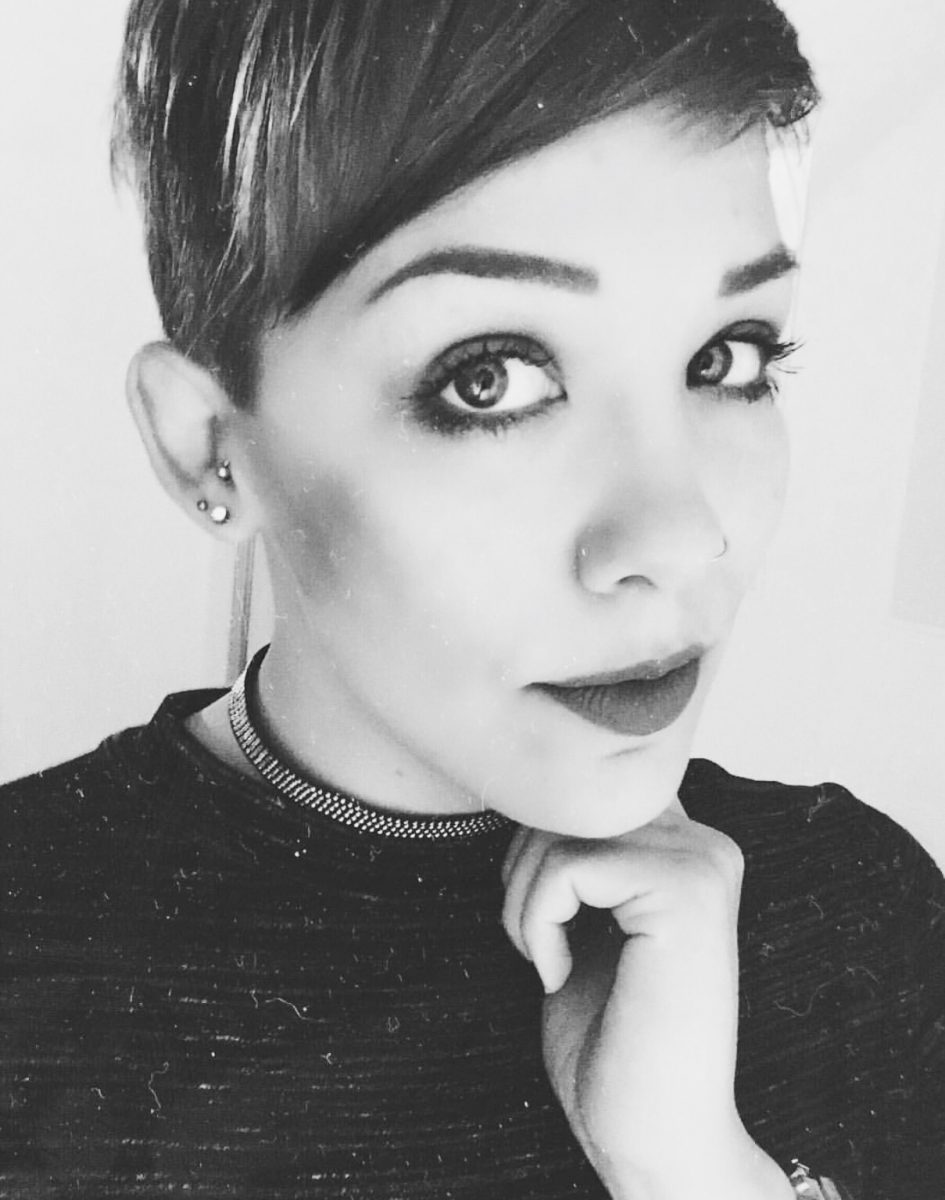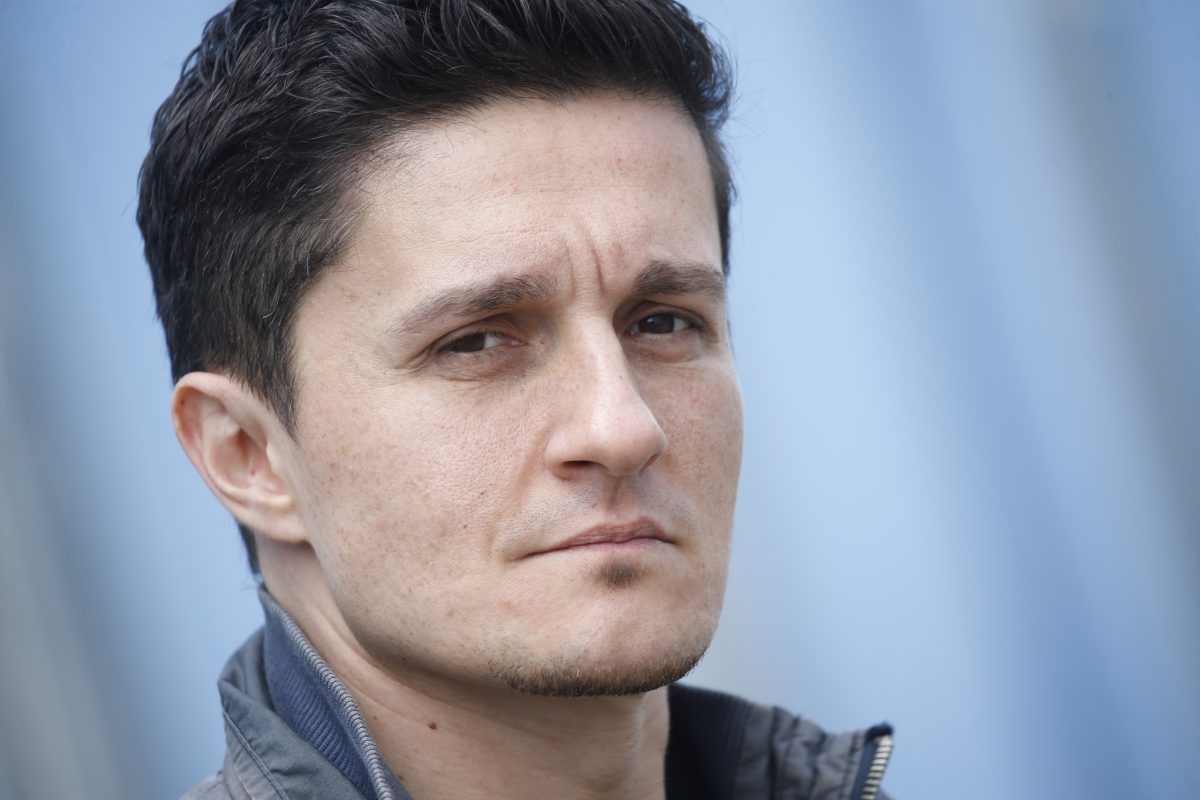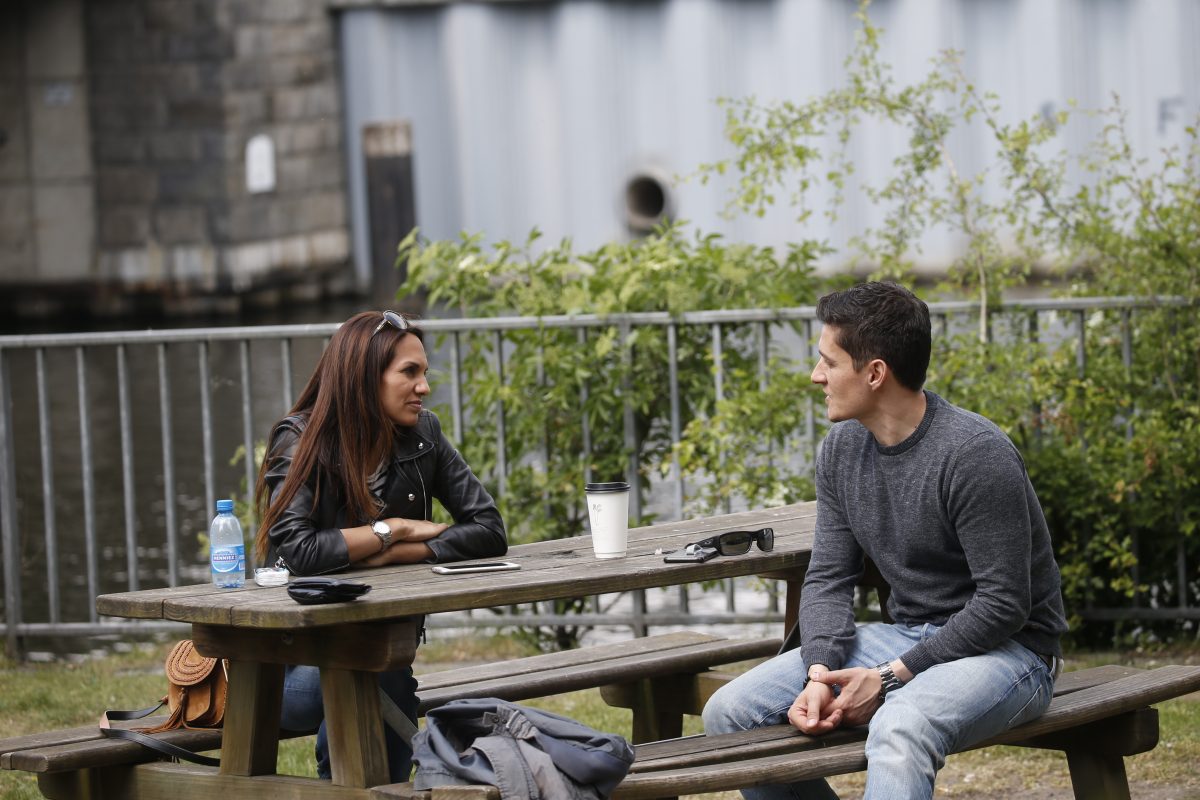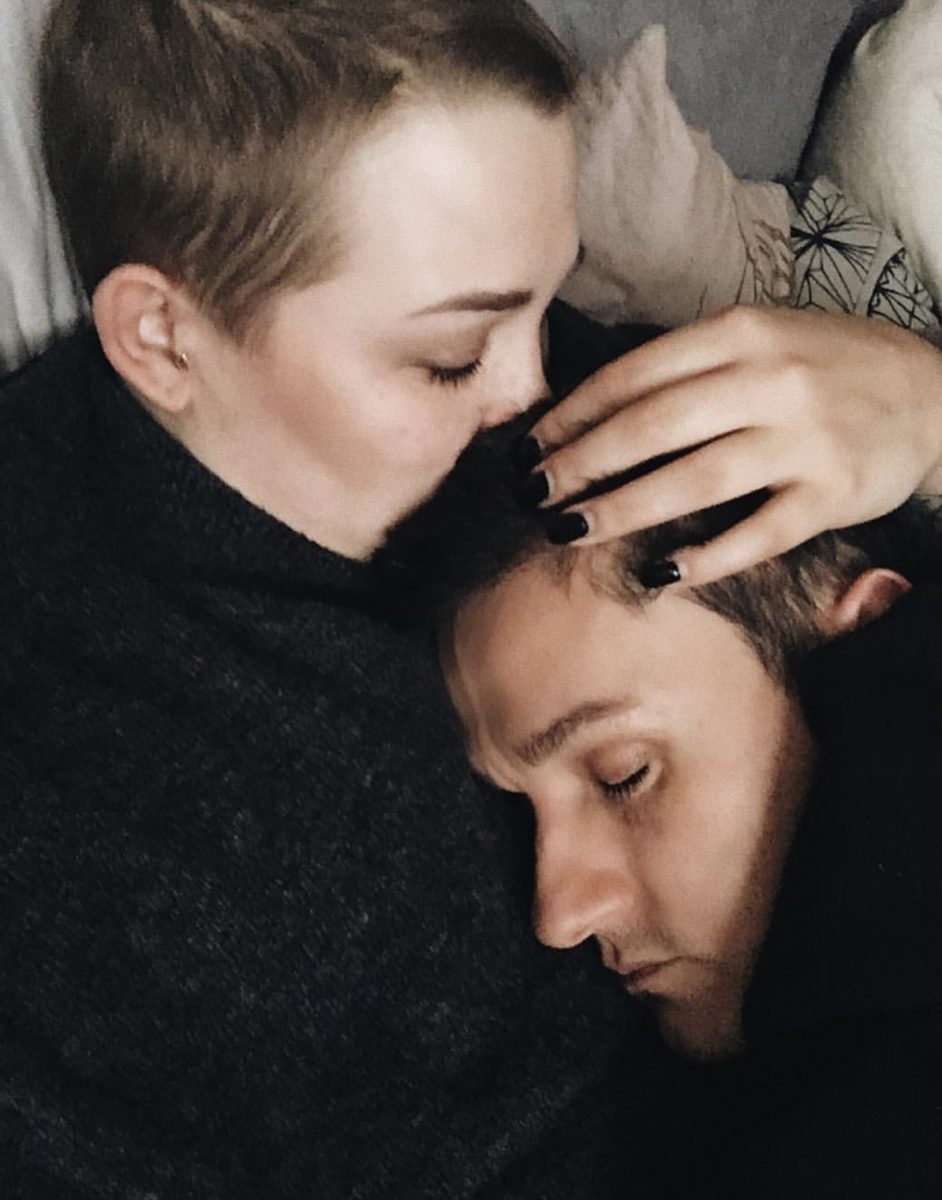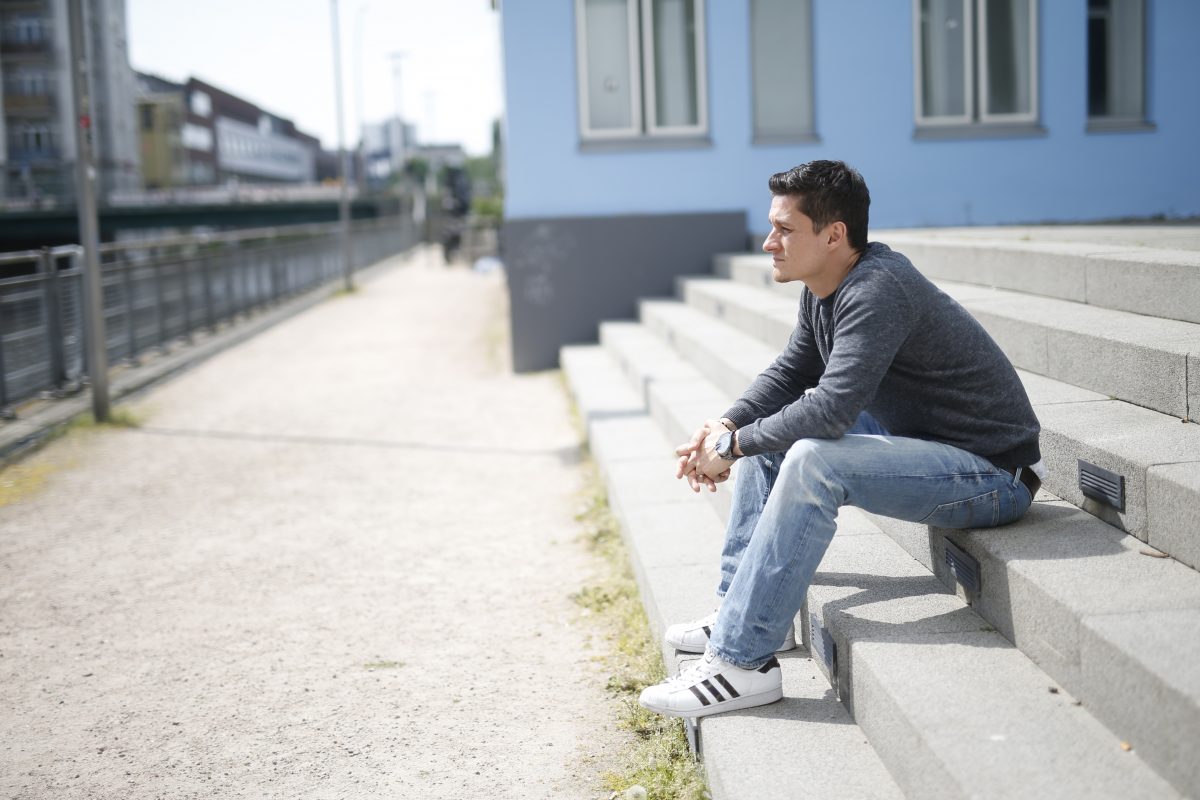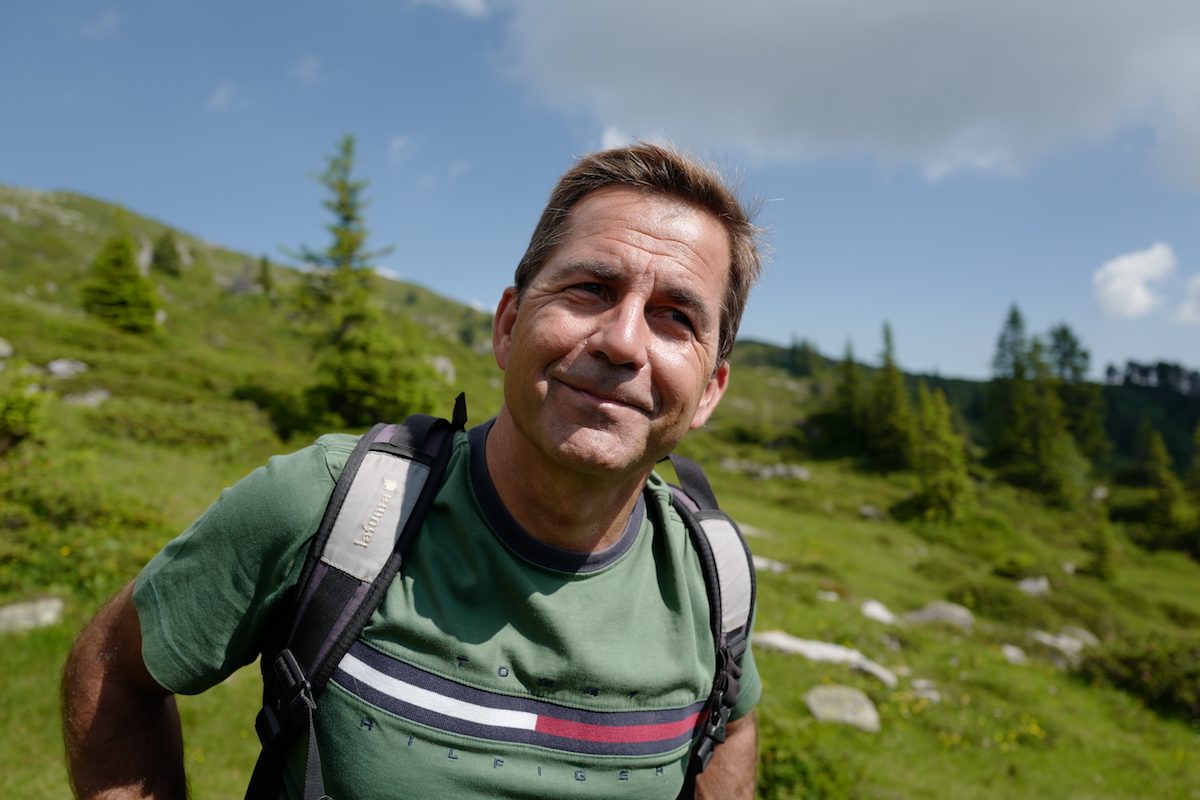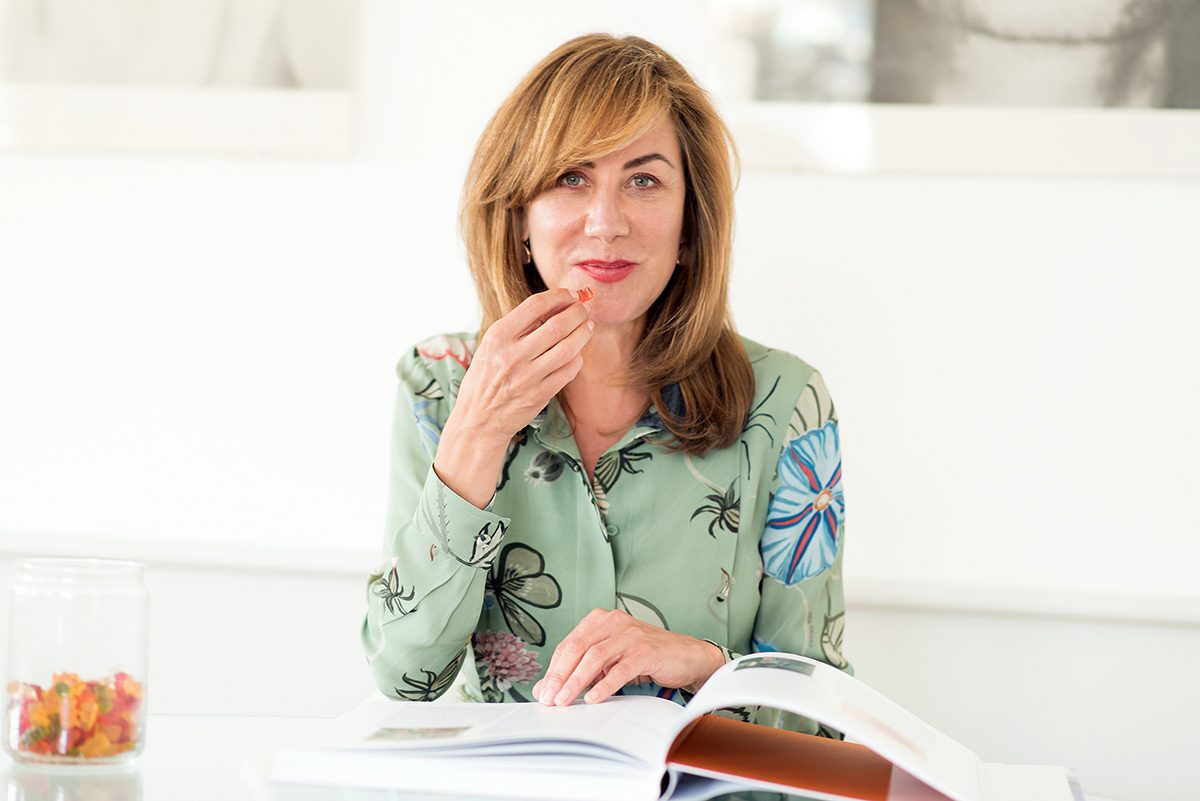
“Kim dying was simply not an option for me.” Chris,* 35
On New Year’s Eve in 2017, Chris’ girlfriend Kim died of breast cancer. She was just 30 years old. As the cancer progressed through her body, the couple shared their ups and downs on social media, and discovered a different side of Instagram – one in which a community of total strangers unites around you in your darkest hour. #kimscrew was and continues to be a source of support and strength for Chris – and a way for Kim’s legacy to live on.
I met Chris on Instagram. I was moving to Hamburg as part of my studies and looking to connect with interesting people there. I asked my followers for ideas and Chris’ name came up. As I scrolled through his posts from the past months, I learned about how his life had been turned upside down and saw the steadily growing community around him.
I was deeply touched by the way that he stood by his girlfriend “until death do us part,” and how he has since tried to save others from the same fate.
I reached out to him, and discovered a wonderful thing: Chris is the same person in real life as he is online. He is authentic, brutally honest, and willing to ask difficult questions.
“I was just drawn to her. Even though she wasn’t really my type.”
Anna: Let’s go back to the moment when it all began. What can you tell me about the day you met Kim?
Chris: It’s funny because it almost didn’t happen. I was invited to a Christmas party at someone’s apartment, but I wasn’t really in the mood to go. Nevertheless, I went and met some people and eventually I got into a heated discussion about video games with one guy. I could talk about video games for hours.
So we were standing in the kitchen and talking, and in that moment Kim walked in, looked at me, and said: “I recognize you from Europcar!” I was a bit taken aback, especially because suddenly everyone turned around and stared at me,
but I didn’t want to end my conversation about video games, so I just kept talking. Kim stood there for a while and at some point she walked away. That’s when the person I was talking to said, “I think she wanted to talk to you.”
I have to admit, I’m incredibly dense when it comes to these kinds of things. A woman has to practically write it on her forehead for me to realize that she’s interested in me. Before the party was over, I asked Kim for her number. I don’t know why. I was just drawn to her. Even though she wasn’t really my type, I have to say.
Why not?
Because she’s the same height as me. Before Kim, all of my girlfriends were shorter than I am. She knew that too. At some point I said to her: “It doesn’t bother me anymore!” (laughing)
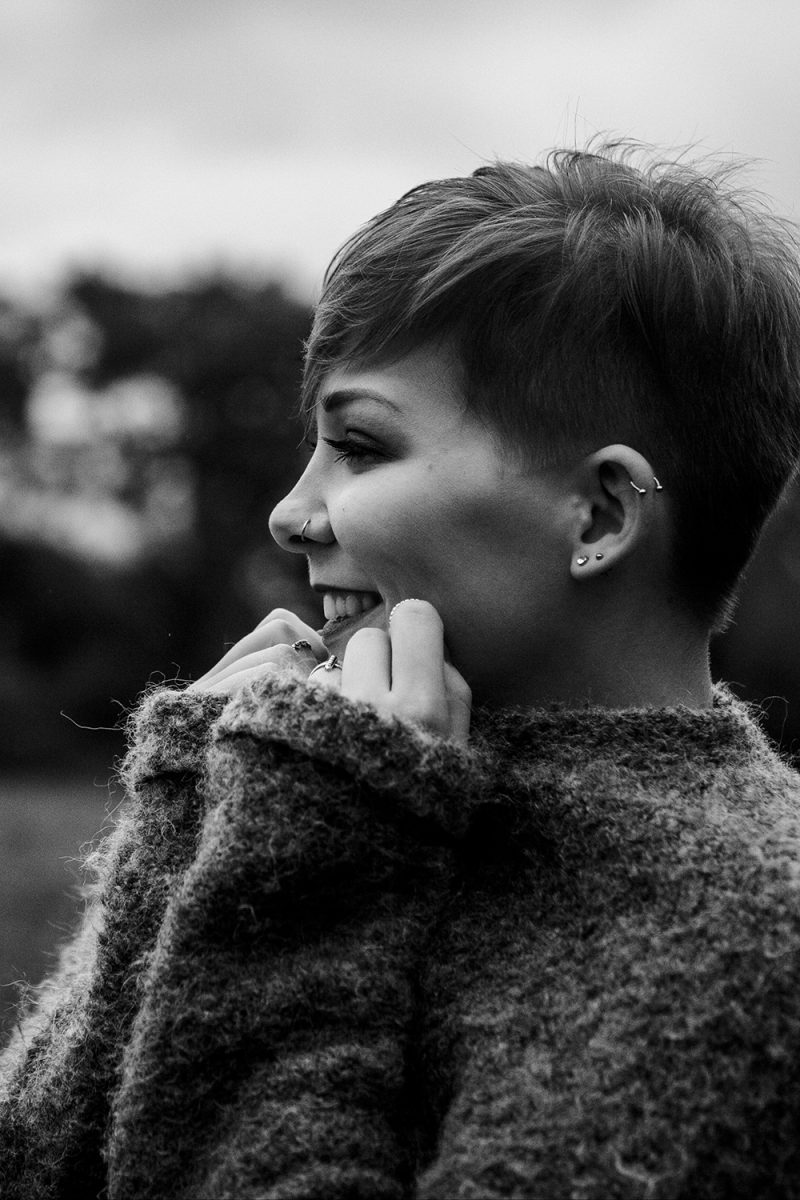
“We both influenced one another. We grew together.”
How would you describe your relationship before she got sick?
We were always very open and honest with one another. We gave each other space, and I really appreciated that. I’m the kind of person who needs to have an hour or two to himself every day. Maybe it’s after work or in the kitchen while I’m cooking.
And Kim was also happy doing things on her own. She had her interests, I had mine, and we also had things in common: exercising, food, going out, seeing friends. I liked that we didn’t smother one another.
In some relationships both people work against one another instead of working together, but, for whatever reason, that was never the case with us. We built each other up and motivated one another. Even though we both had some difficult times during the relationship – I was unemployed, she struggled with her studies for a time – we always motivated each other.
When I met her, for example, she was already working at Europcar …
… so you two really did meet for the first time at Europcar?
Exactly. I rented a car from her a few times for work.
At that time, I asked her: “Is this what you want to do for the rest of your life?” She said: “No.” After that – in part because I had already graduated and she wanted to catch up – she decided to go to university in Denmark. This meant that she had to drive for nearly two hours every day to get there and back.
I believe that we both influenced each other in our relationship, but in very different ways. We found common ground, and that determined the path that we took. We grew together.
“Maybe I should have pushed Kim harder to get checked.”
Looking back, do you see your relationship or certain moments differently because you know now that your time with Kim was limited?
Of course, I’ve thought about it a lot.
Our relationship is shattered now, and I know what it feels like to lose the person you love most to this disease.
But I can say in all honesty: I wouldn’t change a single thing. If I really had to choose, I would say I wish that she had found out about the cancer sooner.
What was it like on the day when she got the diagnosis?
We were in New York. It was January 2017. We were so excited to go on this trip because it was a place we had always wanted to visit. For me, going to New York was a childhood dream come true. I had always felt a strong connection to the city – whether it was watching movies that took place in New York or pretending to be there as a kid. I’m fascinated by large cities.
Kim had already been experiencing physical symptoms that we couldn’t really explain.
What kind of symptoms?
She kept complaining of chest pains. She went to a doctor before our trip, but she completely misdiagnosed her because she didn’t take Kim seriously – possibly because of how young Kim was.
That’s something I beat myself up over to this day: I should have pushed Kim harder to get checked again; to get a second opinion. But when you go to a doctor, you think you’re seeing someone who knows what they’re talking about. The first time, the doctor sent her home with an ointment; the second time with antibiotics.
“The moment we got the diagnosis was absolutely devastating.”
Kim didn’t feel a lump in her breast, but she was in pain?
She had an infection in her breast, but she brushed it aside. New York was getting closer and it wasn’t getting better, but she had another appointment with a different doctor scheduled for after the trip.
I was really worried about her because of how much pain she was in, and I considered canceling the trip, but she refused.
Our third day in New York was so bad that she went to a doctor there, and they sent her to the hospital where they ran some tests. And that’s when they said it: “We think it’s breast cancer.” It was absolutely devastating. To be in a strange city, far from home, and get that kind of diagnosis.
Of course, in that moment our vacation was over, but that didn’t matter. All that mattered was: what do we do now? Thankfully, she had international health insurance because she had gone on longer trips in the past. We were lucky that we had good insurance. It didn’t cost us any more, but it was a huge help. Otherwise, we would have easily had to pay 60,000 euros for the medical bills that we racked up while we were there.
How long was she in the hospital? Did she get more tests done in New York?
She was in pretty bad shape, so they treated her for the pain. They basically gave her enough medication so that she would make it back home. We made the decision not to start any treatments while we were still in New York. We wanted her to be treated by one team in Germany throughout the entire process.
“You can’t truly understand it until you witness it.”
What were you thinking while all of this was happening?
Kim’s mother had had breast cancer. Kim knew exactly what would happen next. Her mother had survived, but it had been a really difficult time, and Kim was very aware of what her mother went through. I had also lost my father to lung cancer just a few months earlier. He was only 59.
Your father died right before Kim was diagnosed?
Six months earlier. He died in July 2016.
So you must have been completely terrified.
I was utterly destroyed. Even though I had seen the treatment process and all the side effects when my father went through it – and trust me, it’s a nightmare – I never thought that this would happen again so soon to someone I loved.
Every cancer is different and every cancer is treated differently. I experienced what Kim went through very differently from what my father went through. The amount of medications and side effects that cancer patients have to deal with is something you can’t truly understand until you witness it.
“I was the one who shaved her head.”
What kinds of side effects did Kim experience?
One of the hardest things for me was that Kim was always very athletic. She gained a lot of weight because of the chemo and the cortisone, and that made her feel really bad about herself. The worst thing for her, though, was losing her hair.
In hindsight, it seems strange that when we were standing in line at the airport, waiting to get into the US, she asked me what I would think if she cut her hair as short as the girl standing next to us. At the time, I told her I wouldn’t like it.
That was before the diagnosis?
Yes. Later on I ended up being the one to shave her head.
What was that like?
What was that like… it was emotional. We were in our living room. Her friends and her mother couldn’t bring themselves to do it.
I had seen how they did it in a movie – “Full Metal Jacket.” So I said: “Just give it to me. I’ll do it.”
And you were really able to bring yourself to do it?
Yes. It’s ironic that I was the person who told her that I wouldn’t like a short haircut on her, and I ended up being the person to give her that haircut myself. But it wasn’t so bad because she still had some hair at the time.
It was much worse when her hair completely fell out after the third round of chemo. That was devastating. She got a wig and she wore it from time to time. She also had a scarf. She always found a way to style herself no matter what. I loved that about her.
“I try to appear stable.”
The absolute worst thing for me was watching her suffer and lose her appetite. Some of the chemo treatments had relatively mild side effects, and sometimes the day after her treatment she would be completely fine. But there were also times when she was totally exhausted, had no energy, and she couldn’t stand certain smells. Sautéed vegetables, for example. She had an extremely heightened sense of smell.
And she had trouble sleeping. That really worried me. It’s one thing to have a long day and get a lot done, but it’s important to recharge your batteries overnight.
Could you sleep if she couldn’t?
No. I could never sleep if she was tossing and turning, even though she was always very considerate of me. When I went back to work, she knew it was important for me to get some sleep and she made sure to let me sleep at night, but I still suffered right along with her.
She had terrible hot flashes; sometimes she was unbearably hot. I can’t imagine what that must have been like for her.
I recently saw it in a documentary about women who are suffering from breast cancer. I had to turn it off because Kim’s side effects were still so palpable for me that I couldn’t stand watching it.
“Sometimes it was hard for me to be around her.”
They say that a person only takes on as much pain as they can handle. When you talk about these times, it feels like you’re observing it from the outside. Do you sometimes feel like you’ve shut down to a certain extent in order to cope?
Yeah, you could say that. Even now, I still feel a disconnect a lot of the time. Like I’m looking down at myself and asking: How am I dealing with this? How is it affecting me? I’m the kind of person who doesn’t like to show weakness.
Why?
It’s hard to explain. I don’t believe in horoscopes, but my zodiac sign is Cancer and maybe that’s part of it – that I have this hard shell and I don’t like anyone bumping up against it. I try to appear stable and to function. But what I’m feeling on the inside, that’s a different story.
What really surprised me is that I started experiencing terrible neck pain last December and January. My whole neck was completely stiff. I thought maybe it was because I wasn’t exercising, or maybe it was stress. In fact, it was actually psychosomatic. I had been carrying such an enormous burden for so long, and I wanted to carry it.
Giving up is not an option for me. I never gave up hope that we would get through it, even in the final days. I wanted to be there for Kim as much as I could, but unfortunately I also had my own moments of weakness.
What did those moments of weakness look like?
Sometimes it was hard for me to be around her. When you see that the person you love so much is suffering and there is nothing you can do to stop it – it just eats away at you. I did everything I could to help her. But at the same time, I felt so powerless.
Did you have any support during this time?
Kim was my support. Here’s a good example: I lost my job in April 2017. Of course, that hit me hard, but at the same time I thought to myself: it’s fate. It couldn’t have come at a better time. It gave me the chance to stay home with her, to take care of her and be there for her.
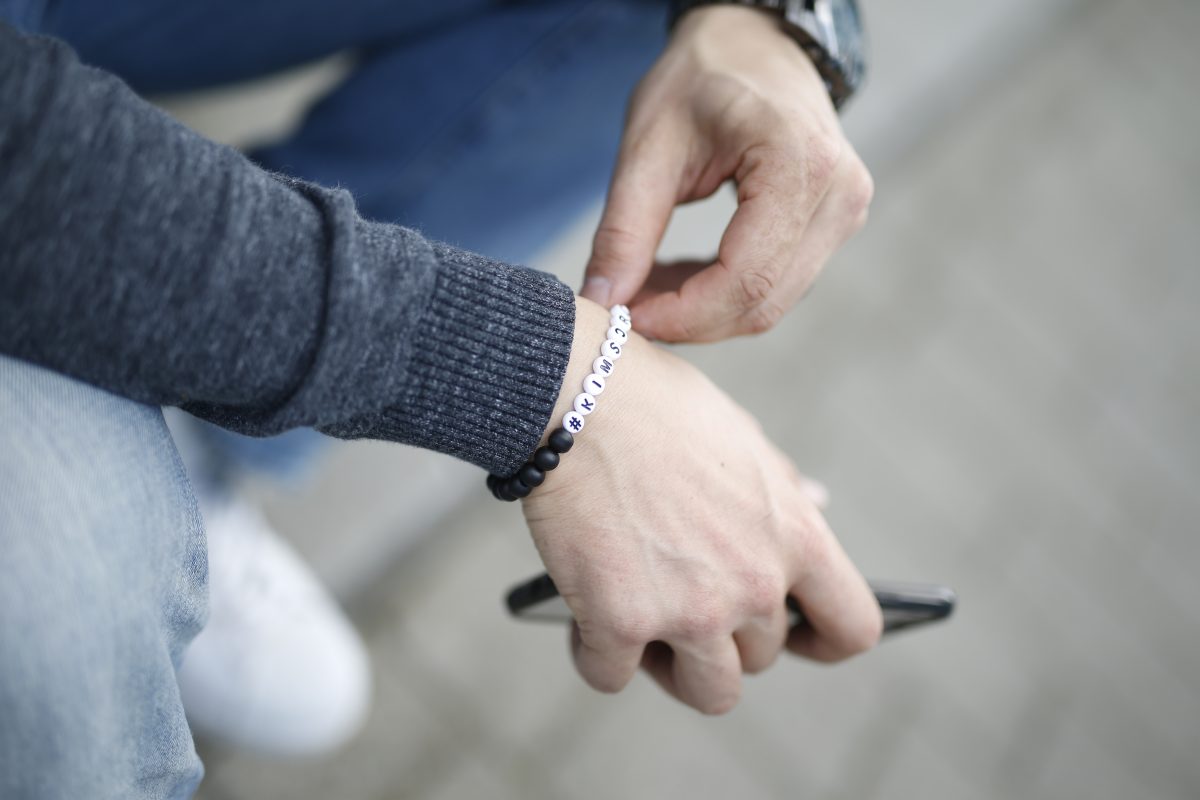
“She was spending too much time alone.”
Before that, she was spending too much time alone. We’ve all been there: when you’re sick and spend two weeks at home and you’re already going crazy from cabin fever. In hindsight, that’s one thing that I feel so bad about. You think: she’s at home, she’s okay and she has everything she needs. But she was alone with her thoughts, and they were very dark thoughts, I think. Of course, after the fact you always think “what if.”
Were you both optimistic?
Kim was a fighter. She was incredibly strong, and we were 100% sure that we would get through it.
Some people get that kind of diagnosis and they fall into a depression, while others develop a fighting spirit, a strong will to live. Was Kim the latter?
Yes. She could have been the kind of person who locks herself in her apartment and spends the entire day in bed crying. Someone who just gives up. Kim did have her darker moments, of course, but that’s totally normal, especially with this kind of prognosis and with all the treatments she was getting.
Nevertheless, I was constantly astounded by her ability to remain positive. She was and still is one of the strongest people I have ever met. I just hope that some of that strength has rubbed off on me.
“When one of us fell, the other person was there to catch them.”
How did all of this impact your relationship? How did the disease affect you?
Kim described it perfectly in one of her blog posts. I recently reread it.
Back then, around the time that I lost my job, she was really worried that we would drive each other nuts. I spent most of my mornings at my desk applying for jobs, while she hung out in the living room. Around noon, I would make us something to eat, and some mornings I went with her to her treatments, or we would just be together.
This time really put our relationship to the test. They say that if you can take a cross-country road trip together and you don’t fight once, then you have a healthy relationship. That’s how it was for us: we spent so many months in our apartment together, just the two of us. And, honestly, this time brought us so much closer.
I was struggling with my unemployment, she was struggling with her disease. Of course, you can’t compare the two. But we were both depressed. Here’s the thing: if one of us fell, the other person was there to catch them.
It doesn’t get any better than that. Just knowing that there is someone who will always be there for you, no matter what. It’s unconditional love. It went without saying that we would be there for one another in every way possible. But I know from talking to a lot of different people that that’s not always the case. People don’t always stay with their partners once they get sick.
“There was no reason for me to leave her alone.”
I’ve also read that it’s common for couples to break up when one person gets sick and, interestingly, it’s because the sick person doesn’t want their partner to have to go through everything with them.
Really? I talked about this with my therapist, and she said that this even happens with older couples. One person says: “This isn’t how I envisioned spending my retirement!” I can’t even fathom that. You spend so many years together. It’s supposed to be “in sickness and in health.” Even though Kim and I weren’t married, we were together for nearly five years. There was no reason for me to leave her alone in her fight against cancer.
Where does your unshakable optimism come from?
To be honest, I don’t know. I think it’s something that just developed between me and Kim. I was sure we would get through it because we were getting such great care at the hospital. We had excellent doctors.
I am also happy that we were able to go to a clinic here in Hamburg that specializes in cancer treatment. I know that’s not always the case. I don’t want to say that hospitals are bad in general, but it’s nice to feel like you are surrounded by experts who know what needs to be done.
Kim dying was simply not an option for me. There was never a doubt in my mind that she would make it.
 “When things got tough, I was glad to have her mother there.”
“When things got tough, I was glad to have her mother there.”
When did things take a turn for the worse?
In December she was very weak and we had her admitted to hospice. Kim had a lot of Instagram followers and this sent shock waves through the online community.
But we didn’t bring her there to die. We wanted her to get palliative care – we wanted someone to be there for her 24/7 so she would be more comfortable. That’s why we took her to the hospice in Flensburg, Germany.
Did she want to go there?
Yes. After talking about it with her mother she agreed to go. Kim’s mom was close by, which I really appreciated because I knew how much her mother meant to her. She was so amazing throughout everything. When things got rough, I was glad to have Kim’s mother there because I knew that she would turn everything around in no time – it was incredible.
We hoped that she could be nursed back to health at the hospice because the pain medication that she was taking wasn’t really working anymore. In hindsight, I know that she was on some seriously strong pain meds.
It quickly became clear that Kim wasn’t going to make it. She found out in the week between Christmas and New Year’s.
“I just didn’t think it would happen so fast.”
Which is a very emotional time…
Yes. But I was happy that we were able to have one last Christmas together. It was such a beautiful evening with her family and it meant so much to her.
I spent the night in her room at the hospice. The staff there was so great, they did so much for us. They set up a bed next to hers for me, they made us a nice breakfast the next morning, it was just incredible!
Afterwards, I went home – I still had to work, of course – and in hindsight, I deeply regret it. But I just didn’t think it would happen so fast. At this time, she seemed to be doing so much better. I thought that she was recovering, that things were looking up.
What I didn’t realize is that the same thing had happened with my father. Apparently, he seemed to rally in his final days.
One last burst of strength.
Yes, all of a sudden it’s like this person is up and running again. But there was something about the look in her eyes that really worried me – it was something I also noticed with my father. The only way I can describe it is that the spark had gone out. I saw it in Kim’s eyes at Christmas and it made me very scared.
In that moment, I knew that she was going to die, but I still had no idea how fast it would happen – none at all. It was exactly one week after a doctor indicated that Kim might not make it.
Kim’s mother and the nurse in the hospital explained to her that things didn’t look good. We texted after that. I reread our text messages recently. She accepted her fate, but at the time it still seemed so far away.
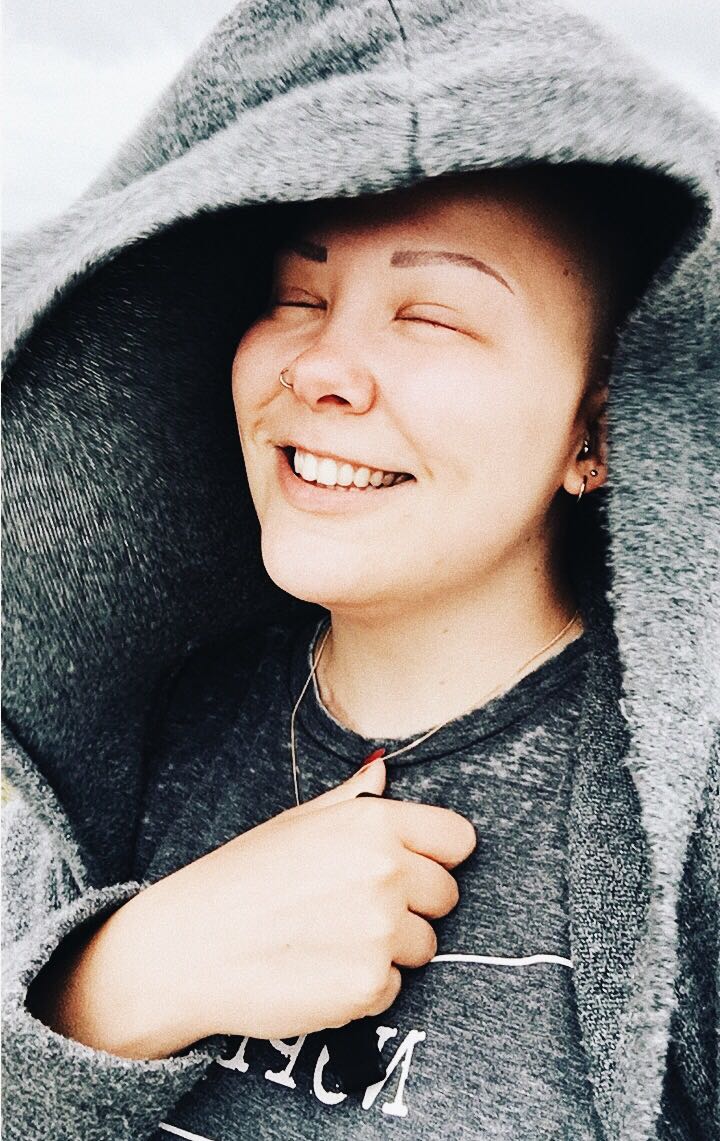
“She accepted her fate.”
When we saw each other again before New Year’s Eve, we talked about what was going to happen. She thought about writing a blog post to say goodbye. I told her that I would be happy to help her write it.
And did she write it?
No, she never got the chance. We talked about it on December 29. On the 30th, she was so sick that she couldn’t move. She understood some of what was happening around her, but she was very weak. As the day went on, it became clearer and clearer.
The night of the 30th, together with the night of the 31st, were the worst nights of my entire life. I spent them lying next to her, terrified. She was having trouble breathing and wasn’t really responsive. If you said something to her, she seemed to understand it but she wouldn’t really respond, just “yes” or “no.”
I barely slept. I spent the whole night listening to her breathing, trying to figure out if she was comfortable, if she needed anything, if she was thirsty. I tried to help her get some rest, and I hoped that she would. When the sun rose, I was so relieved that the night was over and that she slept a bit in the morning.
On the 31st, we were all there with her. It was clear that she wouldn’t be with us for much longer.
When did she die?
We spent New Year’s Eve together. One of her family members was always at her side. Originally, the plan was that she would see all of her closest friends at the beginning of the year. But that night we could tell that it wasn’t going to happen and we were worried that she wouldn’t be able to let go before she saw them.
So we called her best friend who lives in Switzerland. She was in the mountains with a few friends. We called her and said: “Cata, you have to get here now.”
Did Kim know that her friend was there?
Yes, she saw her. She couldn’t say very much, but she saw her. I wasn’t there, because that was a private moment for just the two of them to share. Around 1 am, most people had already said goodbye and left because, of course, they couldn’t all stay in the room overnight.
And you stayed with Kim?
Yes. I stayed. Her mother was with her, so was Cata.
At quarter to two, I was still by her bedside. I was exhausted. There was a couch across from the bed. I laid down to sleep for a bit. About an hour later, Cata woke me up.
It was immediately clear what was happening. I watched Kim’s mother hold her in her arms as she took her last breath. It’s strange what happens to you in a moment like that. It’s impossible to describe.
 “At the end, you can only look on, knowing that this person isn’t going to make it.”
“At the end, you can only look on, knowing that this person isn’t going to make it.”
As a child, my biggest fear was having to face death. I think it’s a normal thing to fear once you realize what death really is. I was always so afraid of death.
Watching a person that you love go through this is so hard to describe. You truly realize how valuable life is and how fast it can be over, and you see that, at the end of your life, it’s not about the things you have; it’s about who you are.
Ultimately, that is all that remains: the memories of a person.
Do you think a part of you also dies in this moment?
Yes, absolutely. I always believed that Kim would survive. Maybe I was too naive.
But don’t you need to hold on to that hope so you can find strength?
Of course. We desperately needed to hold on to that hope. But everything that we put into this fight, everything that she took on – she soldiered through it all, often with a smile on her face – it all seemed to be for nothing. At the end, you can only look on, knowing that this person isn’t going to make it.
This feeling that it’s all so unfair – it’s hard for me to deal with.
That life is unfair?
Yes. I’m the kind of person who thinks that fairness is extremely important. I live my life by a set of principles, one of them is fairness. I had to learn that life isn’t always fair.
 “Kim wanted to live. She loved life.”
“Kim wanted to live. She loved life.”
There are so many people out there who don’t appreciate what they have. I don’t want to say that any one person deserves to suffer this fate more than any other – that’s not what I’m saying at all. But as I was grieving and I saw how other people took their lives for granted, it just felt so unfair to me. Kim wanted to live. She loved life.
People often say that we need to appreciate our lives more. Do you think that you can even start to comprehend this if you haven’t experienced for yourself how quickly it can all change?
Yes and no. I would hope that most people love their lives and don’t take anything for granted, but this kind of experience really shows you how fleeting it all is. Once you have gone through it, you look at everything differently.
Here’s a good example: Last week, a girl who had heard about me and our story approached me at the gym. She told me that she understands what I’m going through. She herself had cancer and just recently got through treatment. But she had lost three family members to cancer. Three! She stood there and could talk to me and I immediately felt connected to her.
I didn’t want to feel bad for her. The fact that she was able to stand there and talk about it, that she could still motivate herself – I have so much respect for people like that. You can just as easily shut yourself up at home and curl up under the covers and feel sorry for yourself. Kim never did that, and I refuse to do it either.
“Everything was so surreal.”
I tried to imagine how hard that must have been for you to leave the hospice and go back to your apartment. It must have looked like Kim would be coming home any day. What do you remember about that first week after Kim’s death?
Everything was so surreal.
I had the chance to say goodbye, and I am so grateful to Kim’s mother for giving me the strength and the courage to do that, because I was so terrified. But it was extremely important for me to do it.
At the same time, it was also important for me to be able to say: now it’s time for me to go. I drove home shortly after she passed because I couldn’t stand being in that hospice anymore. I wanted to go home.
For me, my home is my sanctuary, a place where I can be myself, where I can recharge my batteries and collect my thoughts. For that reason, I don’t have any negative associations with our apartment. Quite the opposite: we were always so happy there; we had so many great times there.
Kim put a lot of effort into decorating our place with her own personal style. I really loved what she did with our apartment. If I moved somewhere else, I would be giving up that piece of her.
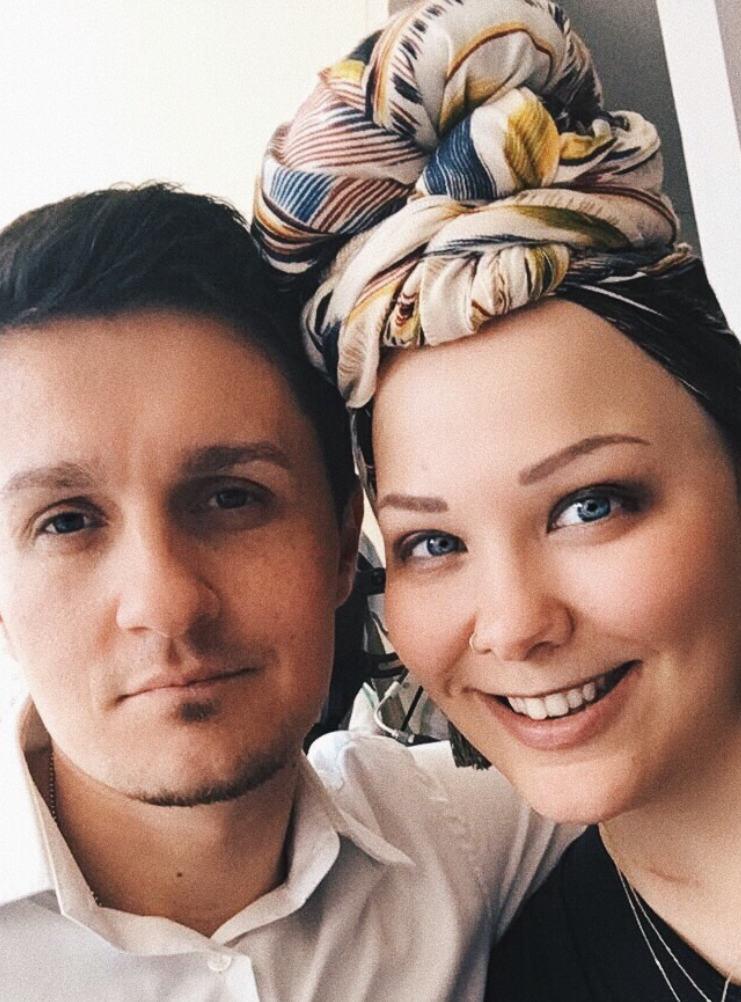 “Kim was a truly genuine person. And that touched people.”
“Kim was a truly genuine person. And that touched people.”
For me, it was also important to personally reach out to as many of Kim’s friends as possible. I know how it is to get the news from the wrong person.
Furthermore, I knew that I would have to issue a statement for all of Kim’s followers on social media before rumors started to circulate. I wanted her followers to learn about her death from me because I really felt like we owed them that.
Why did you two decide to talk so openly about her illness in the first place? I could imagine that many people wouldn’t want to share their personal medical issues.
But that’s not how Kim was. Even though I use social media for my job, Kim was the first person to show me what Instagram is really about. On the one hand, sure, it’s just an app. She always said that: “It could be over by tomorrow. It’s not real life. But it can make your life better.”
And really, all of the feedback and support that we got from Kim’s followers over the past year – it has meant the world to us. So many people who have never met Kim personally were deeply moved by her story. To this day, I get messages from Kim’s followers telling me how much they miss her.
“Be grateful that you’re healthy.”
Kim was a truly genuine person. I loved watching her stories because I knew that she was the same person online that she was at home. She said exactly what she was thinking. She always wanted to make the world a better place. Sometimes in a funny way, sometimes she said things that made you think – that’s what people loved about her.
The world of social media and Instagram can be really superficial. A lot of the time, it’s all about where I am, what I bought, or what I’m eating. That’s all well and good, and it’s also a part of life, but, in the end, it doesn’t really make you think. Kim wanted to inspire people: “Be grateful that you’re healthy. Be grateful for all of the people who love you.”
For example, on her way to work, she would pass by this homeless person and she would give him some money or sometimes bring him something to eat. And not so she could feel superior, but to say: “Hey, guys, pay attention. Look at the world around you and ask yourself how you can make a difference.”
And that touched people. That’s why it was important for me to tell people exactly what happened and give them a chance to mourn.
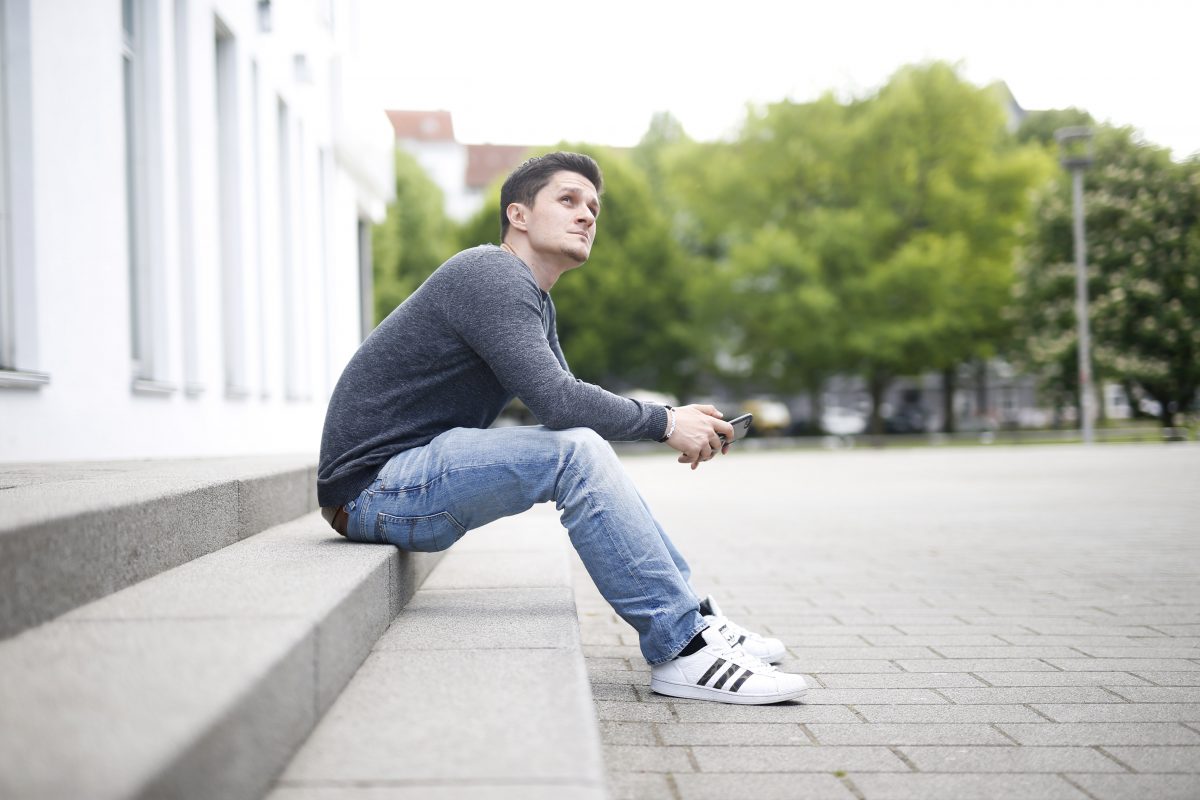 “I wasn’t alone in my grief.”
“I wasn’t alone in my grief.”
I discussed what I would write with her mother and her best friend, and we wrote the message together. I knew that it would elicit a response. I know how many people were following her story and standing by her. A lot of them were convinced that Kim would make it. But what happened after she passed, the response that we got, was more tremendous than I could have imagined.
It really helped me get through this difficult time. I saw that I was not alone in my grief. I wasn’t going through it alone; in a way, we were all going through it together. It meant so much to me that so many people had loved Kim for being who she was.
Do you feel her presence? Is she still with you?
Yes.
Do you talk to her?
Yes. Sometimes the smallest thing will spark a memory. There was a special way that we would talk to one another from time to time. I think every woman has a certain tone of voice that she uses when she wants something.
Here in Hamburg, there’s actually still an ice cream truck that drives up and down the streets and rings a bell and sells ice cream. As soon as I heard the truck driving down our street and ringing the bell, I immediately heard her voice in my head.
“You learn to appreciate the little things.”
As clichéd as it sounds, it’s the little things in life that you learn to truly appreciate and that you miss the most. Kim was so funny, and when she would use that voice it would crack me up. I played out the conversation in my head, the way she would get me to go outside and get her some chocolate ice cream.
I have moments like that all the time. Moments when I feel like she’s not completely gone. I hope that I’ll never lose that. It’s these little everyday moments that remind me how special she was to me.
You’re such an open person, and that openness touches so many people. You have more than 50,000 followers on Instagram. What do you want to do with this platform?
Instagram is something that I do on the side as a hobby, and that’s how I want it to stay. It’s not something that I could do full-time; it would take over my life. I want to be very careful about how much I take on.
But, at the same time, it’s important for me to stand up and say that, too often, breast cancer is dismissed by doctors, especially in young women. It’s not taken seriously.
“Breast cancer is not an old woman’s disease.”
Someone once wrote me that she had to force her doctor to give her a breast exam – I think that’s a disgrace. “It doesn’t affect young women…”, they always say.
Sure, okay. But I’ve spoken to enough young women who have gone through what Kim went through, and some are even younger than she was. It’s not an “old woman’s disease.” It’s something that could happen to any woman. And it needs to be taken seriously.
Of course, Kim was often the youngest one in the chemo ward and at the specialist’s office, but she was certainly not the only one.
You said that you’re someone who strongly advocates for fairness. Can you accept that life was unfair in this case?
Coming to terms with that is my biggest struggle. For me, after everything she went through, I believe that Kim deserved to live.
“I was immature. Kim helped me grow up.”
I know that it’s still very fresh, but can you take anything positive out of Kim’s story?
Yes. She truly changed my life. She always said that I saw the glass as half empty, and for her it was half full. Personally, I would call myself more of a realist. I try to see things realistically. I’m not wearing rose-colored glasses and I don’t think everything around me is bright and cheerful. I see things the way they are and that’s that. This is why we were such a great team.
I’m so grateful to her because she helped me grow up. I was immature. She played a really important role in my life.
 “When you walk through a meadow, which flower do you pick to take home? The most beautiful one.”
“When you walk through a meadow, which flower do you pick to take home? The most beautiful one.”
Maybe it is also helpful to consider the fact that her story has touched so many people and may even have saved someone’s life.
That actually happened! There was a young woman I met at a charity event that was held in Düsseldorf to honor Kim’s memory: for her it wasn’t breast cancer, but ovarian cancer. Kim inspired her to go to the doctor and get it checked out.
Also, while Kim was still here, young women would write to her saying: “I took this seriously and got checked because of you.”
Of course, nothing will bring Kim back. But it makes it a little bit easier to bear when you know that her story is helping to spare other young women this fate.
A young girl recently sent me the most beautiful message, and it’s been a source of comfort to me during this time: “When you walk through a meadow, which flowers do you pick to take home? The most beautiful ones, of course!”
*To protect his privacy, Chris does not want his last name published. It is not “Luder”, which you might assume based on his Instagram handle madebyluderchris.
Chris’ Instagram
Kim’s Instagram
Photos of Kim/Chris: ZVG
Photos of Chris: Jessica Kassner
Do you want to share this post?
Newsletter
Subscribe to our newsletter and you'll get notified every time a new article is online.



